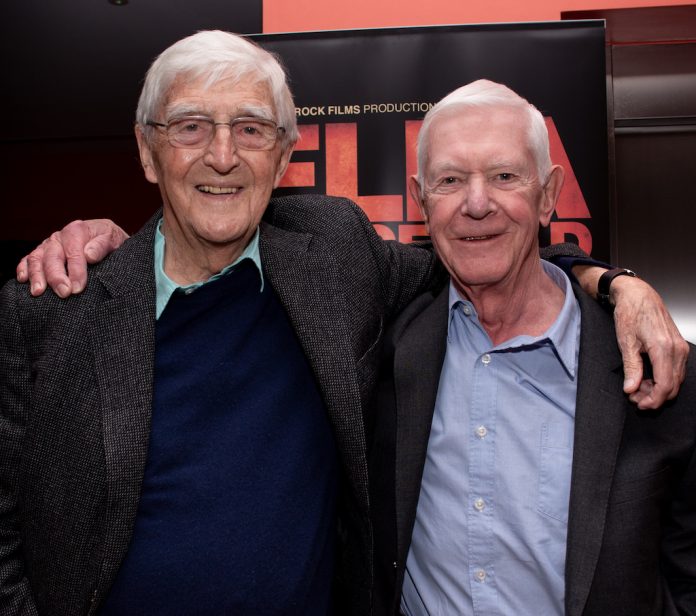“And then there is Ella, about whom critics have surprisingly little to say, other than to state that she is the ultimate jazz singer or to denigrate her in favor of Billie Holiday.” So said Robert Gottlieb in 1996, at the end of Ella’s life, and little has changed in the interim.
The plain truth is that the subject of Ella Fitzgerald doesn’t have the tragic draw of Billie Holiday, or the vivid political undercurrent of Nina Simone, or the hipster appeal of Miles Davis.
As a singer her main attribute was the expression of joy, with a career that was more notable for its consistency over many decades than any ups and downs in her private life. What else is there to say about the First Lady of Jazz but that she is “the greatest” (Bing Crosby), “terrific” (Perry Como), “fabulous” (Mel Tormé)?
In fact, there’s a lot to say about Ella Fitzgerald that goes beyond the stock superlatives. And happily, Just One of Those Things (directed by Leslie Woodhead) begins to address the lack of attention accorded Ella as a subject worthy of thoughtful chronicle.
At a satisfying 90 minutes long, the film charts Ella’s life and career from her birth in 1917 to her death in 1996, as well as linking these in places to the wider narrative of the 20th century. Through a mixture of archive footage, interviews with contemporaries and – most intriguingly – audio clips of Ella herself reflecting on her life, the film tells her wholly engrossing story.
We hear plenty from Ella’s adopted son, Ray Brown Jr., throughout, and these reminiscences make up some of the film’s most absorbing material. At one point, querulous and bittersweet, he sings a few lines from “How Long Has This Been Going On”, which he calls his favourite Ella song. We see stills from Ella and Ray Jr.’s short-lived suburban life in the 1950s, where the pair play baseball in the backyard and hang out around the house – Ella would have been home only for short bouts between tours, and in an interview around this time she speaks wistfully of her truncated domestic life.
But Ella lived to sing, and the film gives due focus to that fact, with snatches of some of her greatest live scat (“How High the Moon”) and tenderest ballads (“A House Is Not a Home”) accompanying the narrative, as well as varied live footage.
Other illuminating talking heads include Norma Miller, a dancer at the same time as young Ella was singing in Harlem and 98 years old at the time of filming, and one of Ella’s drummers, Gregg Field. Jamie Cullum and Laura Mvula also weigh in with their starry-eyed admiration for the singer.
Yet the film’s most interesting contribution is a clip from a radio interview the usually guarded Ella did in 1963, which was never broadcast, and in which she was perhaps the most candid she would ever be. Ella avoided commenting on world events, saying that she felt “showpeople should stay out of politics”, but here she talks about the “prejudice thing that’s going on” in the American South, describing it as “really pitiful”. She was on the receiving end of racial discrimination many times in her life, but in contrast to the Simones and Holidays of her time, felt it wasn’t her place to speak up about it. This short clip gives fascinating voice to Ella’s experience during that period.
The film ends with 16-year-old singer Alexis Morrast taking to the same stage Ella took to for her original audition at the Apollo in 1934. As she sings “A-Tisket, A-Tasket” a capella to the empty auditorium, there’s a thrill of hope for a future in which Ella Fitzgerald’s music lives on.
Ella Fitzgerald: Just One of Those Things – 90 minutes, directed by Leslie Woodhead. Eagle Rock Entertainment, 2018. In selected UK cinemas from 6 May. Trailer and tickets at ellafitzgeraldmovie.com.
















